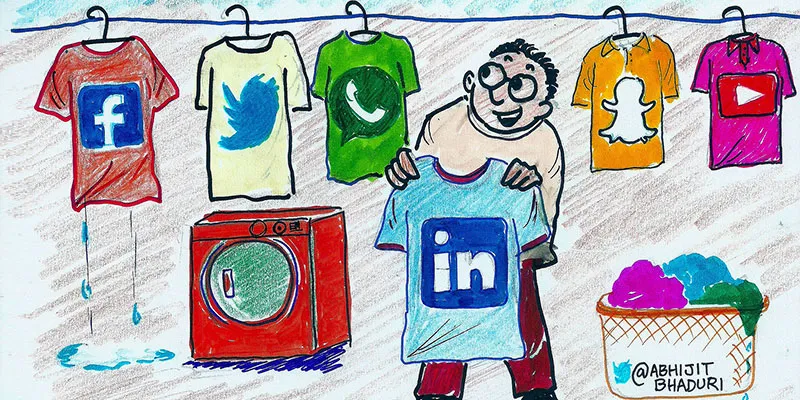How you can protect your social media reputation
The last few months had been difficult for my client, Vikram (not his real name). The new CEO was questioning every proposal he sent to him, and his confidence was diminishing with every rejected proposal. So when a competitor offered him a job as Head of Sales, to begin with immediate effect, he accepted it gladly. If everything went as Vikram was foreseeing it, in eighteen months he would have a chance at being the Director of the competitor’s new venture.

The headhunter gave Vikram a Letter of Intent and explained that the Letter of Appointment would be given on the day he joined. She assured him that this was the norm in the industry and he could go ahead and resign.
Vikram wanted to let the world know that he’d landed this big job. He couldn’t wait to see the look on his boss’s face when he quit.
He tweeted, “Micro-managing makes some bosses feel big. But remember, micro means small.” A few hours later, he tweeted, “Leadership 101: trust your team.”
Vikram was quite straightforward and open about his political views and his witty one lines got him many followers. His latest tweet earned quick likes and retweets. Just before he went to bed he took a final jab at his boss and tweeted, “Can’t wait to say goodbye to this #ToxicCulture.”
By the morning, #ToxicCulture had gone viral and Vikram was fired for badmouthing his employer.
Vikram called the headhunter and told him, “I have just quit my job. I could join next Monday.” The headhunter stammered nervously, “Don’t resign yet. They have had decided to delay the appointment.”
Personal Brand
When I started mentoring Vikram, he had been unemployed for three months. His confidence had been badly dented. The potential employers had done a social media check on Vikram and developed cold feet.
According to CareerBuilder’s annual social media recruitment survey (2016), 60% of employers are using social networking sites to check the social reputation of candidates. According to a survey, a third of the employers have rejected applicants or refused to give an applicant an interview because of their social media posts,.
Employers are wary of the damage that can happen to their brand simply by association. But there are things you can do to safeguard your online reputation.
DO
- Share your knowledge of your domain, industry etc ( evidence of expertise and strong social skills strengthens your case as a candidate).
- Take a minute to think before you write
- Share information about things you care deeply about.=
- Monitor and approve what others post about you
Google has a tool called “Me on the Web” that sends you email alerts whenever your name is mentioned on social media or when your e-mail address is made public. You can choose to get alerts daily, weekly, or even real time. As Andreas Tuerk rightly mentioned in a google blogpost, your online identity is determined not only by what you post, but also by what others post about you.
Klout.com—a service that measures online influence. It is based on the number of followers, frequency of updates, the Klout scores of your friends and followers, and the number of likes, retweets, and shares that your updates receive. Empire.Kred lists your social media profile on a social media stock exchange. Your social media reputation determines whether people invest or divest your profile.
Other options to safeguard your social reputation are to ask a friend to simulate a social media search and see what comes up or run a report on your Facebook profile by using wolframalpha.com.
DON’T
- Post extreme opinions, photos, and posts on the topics of politics, religion, or your current employer
- Post hate speech or racial slurs
- Share any sexually explicit content
- Talk about or post pictures of substance abuse
- Share proprietary information
Social media creates a picture of us that is available for the whole world to look at. Make sure you present an image you want future employers to see.
This article was first published on HBR Ascend. HBR Ascend is a digital learning companion launched by Harvard Business Review for young professionals in India.
(Disclaimer: The views and opinions expressed in this article are those of the author and do not necessarily reflect the views of YourStory.)







